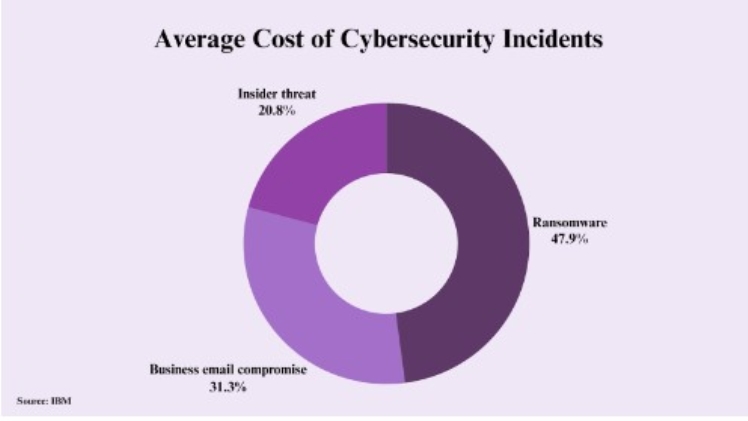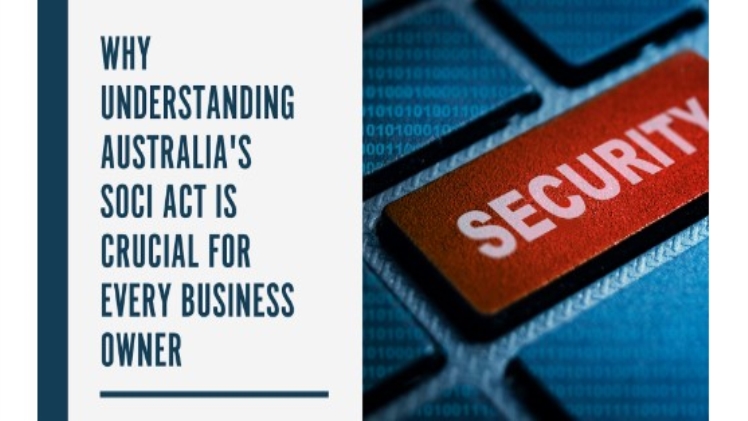Australia’s security landscape is rapidly evolving. With cyber threats on the rise, protecting critical infrastructure has become a top priority. This is where the Security of Critical Infrastructure (SOCI) Act 2018 comes in. As an Australian business owner, understanding your obligations under this law is essential.
Overview of the SOCI Act’s Relevance to Business Owners
The SOCI Act aims to protect Australia’s most important infrastructure like power plants, water systems, and hospitals. Recent data indicates a significant 22% increase in cyber-attacks across these key areas last year. This displays why strong safety rules like the SOCI Act matter.
According to the Cybersecurity and Infrastructure Security Agency (CISA), the SOCI Act requires those in charge of vital infrastructure to commit to maintaining security.
Similar rules around the globe: Lots of places like the USA, UK, Canada, Europe, China, and others now have related laws:
- The USA’s Cybersecurity and Infrastructure Security Agency (CISA) runs cyber programs in line with the SOCI Act. CISA likewise tracks key assets.
- The UK’s Network and Information Systems (NIS) Guide says to handle risks and report issues much like Australia’s SOCI Act.
- Energy, banking, telecoms, and transport sectors must obey Canada’s Critical Infrastructure Protection Act.
- China’s Cyber Security Law requires facilities to keep key details inside the country.
Seeing these international rules helps Australia plan what may come next worldwide. It assists companies in getting ready.
Linking Australia’s SOCI Act to the global outlook displays why understanding Australia’s method to secure vital systems matters. It can have firms prepped for possible future policy shifts.
Key Obligations Under the SOCI Act
The SOCI Act introduces two key obligations:
1. Positive Security Obligations (PSOs)
These legally binding cybersecurity obligations apply to owners and operators of critical assets. By Q2 2023, over 65% of businesses in critical infrastructure sectors have revamped cybersecurity strategies to meet PSOs.
PSOs require implementing vital security controls like multi-factor authentication, encryption, vulnerability management, and more. Failing to comply can result in court-ordered penalties.
2. Obligations for Systems of National Significance (SoNS)
SoNS refers to the most critical infrastructure assets. Owners and operators of such assets face expanded cybersecurity requirements like conducting annual cyber maturity assessments.
Understanding PSOs and SoNS obligations can help businesses avoid non-compliance penalties.
The Expanded Scope of the SOCI Act
Since 2018, the number of key infrastructure areas the SOCI Act protects has expanded from four sectors to eleven currently. Newly covered sectors include healthcare, college and research, food with grocery, transport, plus postal and shipping.
Specifically:
- Healthcare: Hospitals and medical offices holding health histories of Australians now fall under it to guard private patient information.
- Colleges: Universities and research groups dealing with intellectual property and proprietary findings now must follow the widened rules.
- Food & grocery: Large food storage warehouses and major supermarket chains, which control most food supplies, are now covered by the SOCI Act.
- Transport: Ports handling the bulk of non-bulk cargo and airports taking over 200,000 passenger trips yearly qualify for the amended Act.
- Cost impacts: The increased range means additional businesses must now check if the Act applies to them. Necessary cyber security upgrades indicate extra costs that bigger operators might transfer to consumers via price hikes. However, absorbing such expenses is smarter than risking fines and reputation damage from incidents.
Compliance and Regulatory Challenges
The SOCI Act adopts a flexible, non-prescriptive approach focused on outcomes rather than detailed mandates. However, this principle-based methodology can pose compliance challenges for some businesses.
Investing in robust security measures carries high costs, which get multiplied for smaller firms. Overall compliance costs average around $120,000 per business, emphasizing the critical need for strategic budgeting. Refer to the data below to understand the costs of cybersecurity incidents for businesses:

Data Source: IBM
Another obligation is reporting cyber incidents within 12 hours. While prompt notifications are vital, this narrow window is shorter compared to the 72-hour timeframe in the US and UK.
The Role and Responsibilities of Business Owners
The SOCI Act applies not just to asset owners but also to “responsible entities” like operators and service providers. Comprehending obligations across entity types is paramount. Additionally, requirements differ based on factors like asset criticality, risk exposure, and dependency relationships. Business owners need clarity across such nuances.
Different entities and assets have varying obligations under the SOCI Act. Overall, forward-thinking mitigation, phased expansion of security controls, and proactive planning are advisable over-reactive approaches.
Strategic Importance of the SOCI Act for National Security
Robust critical infrastructure security boosts Australia’s resilience against modern threats. Business owners play a crucial role in maintaining the seamless operation of assets like power grids.
Therefore, beyond mandatory compliance, the SOCI Act is strategically important for national security and Australia’s economic stability. A shared culture of trust and accountability across government and industry is vital.
Proactive participation from businesses creates a more secure and resilient environment benefitting all Australians.
FAQs on the SOCI Act
What are the penalties for non-compliance with the SOCI Act?
For large businesses, the maximum civil penalties can reach up to $50 million. Smaller entities face lower caps based on their size. Added damage from cyber breaches due to lax security can exceed fines. Hence, while penalties seem harsh, non-compliance rarely makes business sense.
How does the SOCI Act affect small to medium-sized enterprises?
As larger operators transfer compliance overheads to consumers, indirect impacts can trickle down to smaller entities within supply chains. Understanding such broader implications helps SMEs prepare accordingly through measures like cyber insurance.
What steps should business owners take regarding SOCI Act compliance?
- Know if you qualify as a responsible entity
- Identify dependencies with critical assets
- Assess asset criticality correctly
- Implement risk management foundations
- Plan budgets for phased security uplifts
- Maintain cyber incident response plans
- Stay updated on evolving regulations
In Conclusion
Australia’s SOCI Act heralds a new era of public-private partnerships for critical infrastructure security. While compliance demands commitment, proactively embedding its regulations positions businesses to thrive amid the rapidly evolving threat landscape. Working collectively with industry counterparts and availing of government assistance can smooth the transition towards a more resilient national cyber posture.

